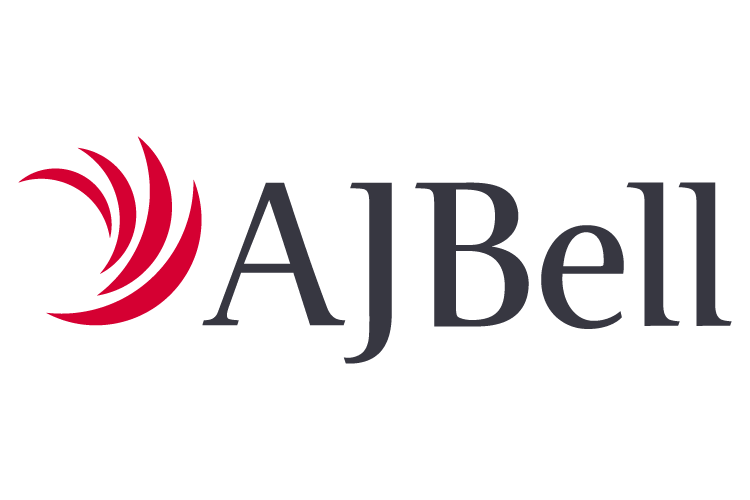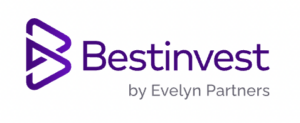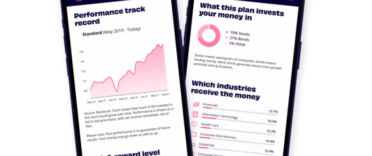 The best SIPP & cheapest SIPP
The best SIPP & cheapest SIPP
In this independent comparison, we compare SIPP charges from all the best SIPP providers to help find the best and cheapest SIPP for you. A SIPP is short for a Self Invested Personal Pension. Finding a cheap low-cost pension is only part of the story. In order to find the best SIPP provider for your personal circumstances you must consider more than just cost.
1 minute summary - The best & cheapest SIPPs
- A SIPP is a DIY pension where investors can choose their own investments
- The main charges on a SIPP are admin fees, dealing charges and fund manager charges.
- Interactive Investor* offers an award-winning SIPP that is a cheap option for investors thanks to its fixed charging structure. Those with smaller pension pots of less than £50,000 will pay only £71.88 per year.
- One of the best SIPPs for tools and functionality is the Hargreaves Lansdown Vantage SIPP*
- The cheapest SIPP for most people is likely to be AJ Bell* or Vanguard Investor.
- If you are looking to minimise costs but want someone to manage your money, Nutmeg’s SIPP is a popular choice for beginners. Our exclusive offer means Nutmeg will waive its management fees for the first 12 months.
What is a SIPP?
A SIPP is a DIY pension where investors can choose their own investments. The full title is Self Invested Personal Pension. Traditional personal pensions limit your investment choices to a small number of funds typically run by the pension provider's fund managers. With a SIPP you can invest anywhere you want making your own choice of pension funds and managing them over time. That way you can ensure you are in the best pension funds and maximise your pension fund at retirement.
PensionBee
Combine, contribute and withdraw online. Take control of your retirement and join 229,000 customers saving with PensionBee.
- Sign up in minutes
- Make flexible contributions and withdrawals¹

How do SIPPs work?
A SIPP works in a similar way as investing in a Stocks and Shares ISA via a fund platform, the only difference is that you get income tax relief on your SIPP contributions when investing in a SIPP. Using a SIPP to build a private pension fund gives investors complete control over their investments to hopefully obtain a greater return than using the limited investment choices of a simple personal pension product, such as a stakeholder pension.
The growth of fund supermarkets in recent years has meant the cost of investing in a SIPP has fallen dramatically, often comparable with that of a Stocks and Shares ISA. If you are considering investing in a Stocks and Shares ISA read our guide – The best stocks and shares investment ISA (& the cheapest fund platform).
Should I consider investing in a Self Invested Personal Pension (SIPP)?
If you are currently in a company pension scheme, particularly one where your employer makes contributions then you will probably be better off remaining in that scheme. If, however, you are investing directly into a personal pension via a pension provider then you may want to consider moving to a Self Invested Personal Pension (SIPP) especially if you are comfortable with choosing your own SIPP funds and regularly monitoring them.
If you wish to learn how to choose which funds to buy and when, even if you are a complete novice, then sign up to receive my FREE short series of emails which teaches you how. It takes just 2 minutes a day and is the result of thousands of hours of research and a career as an investment analyst. You will learn the simple tools and techniques that the very best fund managers use which you can too when DIY investing.
Of course, if you would rather someone managed your investments for you there are a number of new managed robo-advice pensions which are listed at the foot of this article. They will invest your money for you. However, the rest of this article will assume you are looking to invest your own money in a full SIPP.
What should I look for when choosing a SIPP provider?
If you are simply looking for a cheap pension provider then there are a number of pension charges to consider when choosing your SIPP provider. These costs vary depending on what you invest in and how big your pension pot is. Yet the fees charged are only part of the story. Some providers will only allow you to invest in funds, others also offer access to shares and investment trusts. Some cheap SIPP providers offer a basic service while others provide a more comprehensive service including a selection of useful tools and guides to help with your investment research.
What fees are charged when investing in a SIPP?
The main SIPP charges and costs are as follows:
- Admin fees – an administration fee can be charged monthly, quarterly or annually, however, not all providers charge this type of fee. There might also be further charges applied for transferring money in or out of your SIPP (known as SIPP transfer charges)
- Dealing charges – this is a fee charged when dealing in funds or shares and they vary between SIPP providers. You need to make sure the provider you choose has a charging structure that meets your requirements
- Fund manager charges and other fees – fund managers also charge an annual fee. Some SIPP providers negotiate cheaper fund deals and pass this reduction on to their investors. Also, check out the fund platform's full fee list for any extra fees charged before you make your final choice
Later in this article, we include a full SIPP comparison table of the costs of each SIPP provider so that you can find the cheapest SIPP provider for the size of your pension pot.
However, as previously mentioned, you shouldn’t just focus on cost but instead, consider value for money as well as the level of service provided. If good customer service (including helplines), as well as research and tools, are important to you then you need to look beyond cost. A lot of DIY investors require the ability to buy and sell investments quickly and easily online or via an app – so make sure your SIPP provider will let you. Also not all SIPP providers allow you to invest in shares and investment trusts, something the more experienced DIY investor might want to do. So if this is important to you then check your permitted investment choices.
Which is the best SIPP?
The Best SIPP provider for tools & functionality – Hargreaves Lansdown Vantage SIPP

- reasonably priced and offers excellent investment choice and customer service
- the most popular SIPP in the UK and winner of numerous Best SIPP awards
- excellent website and app that enables you to buy and sell investments quickly and easily
- allows you to invest in shares, unit trusts and investment trusts
- annual admin charge for funds – 0.45% up to £250,000, 0.25% for £250,000 to £1m, then 0.10% between £1m and £2m and there is no charge over £2m
- separate 0.45% charge for holding shares, applied to the whole account, but capped at £200
- no transfer out fee
- can start with a minimum lump sum contribution of £500 or a regular monthly contribution of £25
Popular managed pension for beginners – Nutmeg
Nutmeg – click to read our unbiased review
- one of the few online investment services (robo-adviser) in the market that offers a pension product.
- ideal for those who want to minimise costs but want someone else to manage the money.
- Nutmeg offers a choice of 10 portfolios with varying levels of risk. The portfolios are managed on a discretionary basis using low-cost ETFs which invest in a range of assets.
- Nutmeg charges (on top of the ETF annual charges of course) are: 0.75% for anything under £100,000 invested, then 0.35% on any amount over £100,000
- Nutmeg also offers a choice of 5 fixed allocation portfolios with varying levels of risk. They offer a diversified portfolio without the cost of continuous management. The fees are 0.45% for anything under £100,000 invested, then 0.25% on any amount over £100,000
- the minimum initial investment is £500 and Nutmeg does accept transfers-in
- Nutmeg helps you choose the right portfolio for you once you register to open a pension.
- Money to the Masses has also secured an exclusive offer that means Nutmeg will waive its management fees for the first 12 months. T&Cs apply. Capital at risk. On a £20,000 investment that is a saving of £150. That makes it not only the cheapest way to invest via Nutmeg but it is also the best offer in the market of any robo-advice firm or investment platform.
- Read our full unbiased Nutmeg review.
Which is the cheapest SIPP provider?
If you are just interested in low-cost SIPPs then use our SIPP charges comparison tables below to compare UK SIPP providers and find the cheapest SIPP for your portfolio size. Our calculator takes into account the SIPP fees applied to portfolios ranging in size from £5,000 to £1million to help you find the cheapest SIPP.
The cheapest SIPP for most people – AJ Bell or Vanguard
 AJ Bell*
AJ Bell*
- annual charge for funds at 0.25% up to £250,000, 0.10% for £250,000 up to £1m, 0.05% for £1m – £2m, no charge over £2m investment
- fund dealing is a flat fee of £1.50 online
- share dealing is £5.00 per deal for zero to nine deals, and £3.50 per deal for 10 or more deals in the previous month
- £25 for one-off income payment, £100 p.a. for regular payments
AJ Bell* – click for more details
 Vanguard
Vanguard
- annual charge of just 0.15% per year, capped at £375
- no admin charges or exit fees
- no charge for drawdown
- invest from £500 lump sum or £100 per month
- minimum fee of £4 per month on self-managed products will apply from 31.01.25
Vanguard – click for more details
Alternative SIPPs that provide good value
 Interactive Investor SIPP*
Interactive Investor SIPP*
- One of the cheapest SIPPs thanks to its flat fee subscription model
- Those with a pension pot under £50,000 will start on its ‘Pension Essentials' plan charged at just £5.99 per month
- Those with more than £50,000 in a SIPP will pay the ‘Pension Builder' service plan charged at £12.99 per month
- service plan does not include any free trades
- no exit fees
- fund dealing and share dealing charges are charged at £3.99
- No annual administration charge and no drawdown fees
 Fidelity SIPP*
Fidelity SIPP*
- a low cost SIPP
- no set up or annual fees
- annual fund admin fee is applied at £45 p.a. flat fee up to £7,500 then 0.35% up to £250K, then 0.2% on larger portfolios up to £1m with no fee charges on assets held above £1m. Fee paid monthly in arrears
- share dealing charged at £10 per trade or £1.50 as part of a regular savings or withdrawal plan
- £1.50 charge for dividend reinvestments
- Online service not as slick as the likes of Hargreaves Vantage SIPP
 Bestinvest*
Bestinvest*
- annual charge for funds and shares of 0.40% up to £250,000 (minimum of £120), 0.20% from £250,000 to £500,000, 0.10% from 500,000 to £1m, no charge over £1m
- can invest in ready-made portfolios with fees starting at 0.20%
- fund dealing is free while share deals will cost you £4.95 per deal
- no annual administration fee (minimum service fee is £120 per year)
- pays 3.95% interest on uninvested cash
 Charles Stanley*
Charles Stanley*
- annual account charge of £100 +VAT (waived if combined assets across the platform of £30,000 – excludes joint accounts)
- Charges a platform fee of 0.30% per annum on the value of all investments held across all accounts. Minimum of £60 and maximum of £600 per year.
- fund deals cost £4 per trade, online share dealing is £10.00 per trade. £50 free trades credited every 6 months
- transfer out fee £10 per holding
Cheapest SIPPs if investing in shares, investment trusts and ETFs
- commission-free share trading
- easy setup and user-friendly app
- invest in fractional shares
- Free share worth between £10 and £100* T&Cs apply. Capital at risk
The cheapest SIPP provider comparison tables
If you are only focused on getting the cheapest SIPP then the below tables compare SIPP charges for all the major SIPP providers.
SIPP charges comparison table if you want to pick your own funds (unit trusts)
The table below shows the cheapest SIPP for those wanting to choose their own portfolio of unit trusts. Simply look at the column that most closely matches the size of your pension pot for an estimate of the annual cost if your SIPP was held with each fund platform. All the figures in the table show the annual platform/SIPP charges, ignoring the underlying fund charges which are typically another 1.0% to 1.5% a year irrespective of which platform you choose. The table assumes you only invest in funds and that you make 10 trades per year. You can also view this table as a coloured heatmap where green is the cheapest SIPP for a given portfolio size and red the most expensive. Cheapest SIPP heatmap.
| Platform | Fund Buy or Sell costs | £5,000 portfolio | £25,000 portfolio | £50,000 portfolio | £100,000 portfolio | £250,000 portfolio | £500,000 portfolio |
£1,000,000 portfolio
|
| AJ Bell* | £1.50 | £28 | £78 | £140 | £265 | £640 | £890 | £890 |
| Bestinvest* | Free | £120 | £120 | £200 | £400 | £1,000 | £1,500 | £2,000 |
| Charles Stanley* | £4 | £180 | £195 | £150 | £300 | £600 | £600 | £600 |
| Close Brothers Self Directed Service | Free | £193 | £243 | £305 | £430 | £805 | £1,430 | £2,610 |
| Fidelity SIPP* | Free | £45 | £88 | £175 | £350 | £500 | £1,000 | £2,000 |
| Halifax Share Dealing | £9.50 | £185 | £185 | £275 | £275 | £275 | £275 | £275 |
| Hargreaves Lansdown* | Free | £23 | £113 | £225 | £450 | £1,125 | £1,750 | £3,000 |
| Interactive Investor*1 | £3.99 | £112 | £112 | £112 | £196 | £196 | £196 | £196 |
| iWeb – £100 fee to open an account | £5 | £140 | £140 | £230 | £230 | £230 | £230 | £230 |
| James Hay Modular iSIPP | Free | £233 | £283 | £345 | £470 | £625 | £1,150 | £1,950 |
| Standard Life Level 2 Investments | Free | £292 | £412 | £300 | £550 | £1,125 | £2,000 | £4,000 |
| Vanguard | Free | £8² | £38² | £75 | £150 | £375 | £375 | £375 |
| Willis Owen | Free | £20 | £100 | £200 | £400 | £775 | £1,150 | £1,900 |
1 Cost based on the ‘Pension Essentials' and ‘Pension Builder' service plans. ² Vanguard is introducing a minimum fee of £4 per month for self-invested product from 31.01.25. Minimum fee will therefore be £48 per year
Cheapest stock and shares SIPP if you only want to invest in shares, investment trusts and ETFs
The table below assumes that you want to invest in shares, investment trusts and ETFs and that you make 20 trades a year. You will have to pay additional charges levied by the funds you invest in on top of the figures quoted but they will be fairly standard across all platforms.
| Platform | Minimum investment | Single Trade cost | Regular Investing cost | £5,000 portfolio cost | £10,000 portfolio cost | £20,000 portfolio cost | £50,000 portfolio cost | £100,000 portfolio cost |
£250,000 portfolio cost
|
| AJ Bell* | £25 per month or start with £1,000 | £5.00 | £1.50 | £113 | £125 | £150 | £220 | £220 | £220 |
| Barclays | No minimum | £6.00 | £1.00 | £318 | £318 | £318 | £320 | £370 | £520 |
| Bestinvest* | £500 | £7.50 | £120 | £139 | £179 | £299 | £499 | £1,099 | |
| Charles Stanley* | £50 per month or start with £1,000 | £10.00 | £280 | £280 | £280 | £250 | £400 | £700 | |
| Close Brothers Self Directed Service | £50 per month. No minimum to start | £8.95 | £372 | £384 | £409 | £484 | £609 | £984 | |
| Fidelity Personal Investing* | £50 per month or start with £1,000 | £10.00 | £245 | £245 | £245 | £245 | £245 | £245 | |
| Freetrade* | £50 | £0 | £120 | £120 | £120 | £120 | £120 | £120 | |
| Halifax Share Dealing | £1 | £9.50 | £2.00 | £280 | £280 | £280 | £370 | £370 | £370 |
| Hargreaves Lansdown* | £25 per month or start with £100 | £11.95 | £1.50 | £262 | £284 | £329 | £439 | £439 | £439 |
| iDealing | £1,000 | £9.90 | £218 | £218 | £218 | £218 | £218 | £218 | |
| IG | £250 | £8.00 | £365 | £365 | £365 | £365 | £365 | £365 | |
| Interactive Investor*1 | £1 | £3.99 | £112 | £112 | £112 | £112 | £196 | £196 | |
| iWeb – £100 fee to open an account | No minimum | £5.00 | £190 | £190 | £190 | £280 | £280 | £280 | |
| Sharedeal | £240 per month or start with £10,000 | £9.50 | £309 | £309 | £309 | £309 | £309 | £309 | |
| Willis Owen | £25 | £7.50 | £1.50 | £170 | £190 | £230 | £350 | £550 | £925 |
1 Cost based on the ‘Pension Essentials' and ‘Pension Builder' service plans
Cheapest Robo-advice pension (managed pensions)
There has been an explosion in the number of online only companies offering managed investment services. These so-called robo-advisers tend to focus on offering their services via a stocks and shares ISA. However, a number now offer a pension product. The tables below compares the cost of the robo-advice pensions currently available. The difference between these managed pensions and the SIPPs listed in the table above is that the robo-advice companies below run your money for you whereas the above SIPPs require you to pick your own investments yourself. The first table below is comparable to the one above for the DIY SIPPs because it strips out the underlying fund charges. The second table below compares the total cost of the pension including the underlying fund charges.
Robo-advice pension management fee comparison (i.e. without fund charges)
| Robo Adviser | Minimum investment | £5,000 portfolio cost | £25,000 portfolio cost | £50,000 portfolio cost | £100,000 portfolio cost | £250,000 portfolio cost | £500,000 portfolio cost |
£1,000,000 portfolio cost
|
| Nutmeg fully managed | £500 | £38 | £188 | £375 | £750 | £1,275 | £2,150 | £3,900 |
| Moneyfarm* | £500 | £38 | £165 | £315 | £565 | £1,090 | £1,965 | £3,715 |
| Wealthify | £50 | £30 | £150 | £300 | £600 | £1,500 | £3,000 | £6,000 |
Robo-advice pension comparison – total costs
| Robo Adviser | Minimum investment | £5,000 portfolio cost | £25,000 portfolio cost | £50,000 portfolio cost | £100,000 portfolio cost | £250,000 portfolio cost | £500,000 portfolio cost |
£1,000,000 portfolio cost
|
| Nutmeg fully managed | £500 | £38 | £188 | £375 | £750 | £1,275 | £2,150 | £3,900 |
| Moneyfarm* | £500 | £38 | £165 | £315 | £565 | £1,090 | £1,965 | £3,715 |
| Wealthify | £50 | £30 | £150 | £300 | £600 | £1,500 | £3,000 | £6,000 |
If a link has an * beside it this means that it is an affiliated link. If you go via the link, Money to the Masses may receive a small fee which helps keep Money to the Masses free to use. The following links can be used if you do not wish to help Money to the Masses or take advantage of any exclusive offers – Hargreaves Lansdown, Interactive Investor, AJ Bell, Moneyfarm, Fidelity, Bestinvest & Charles Stanley










